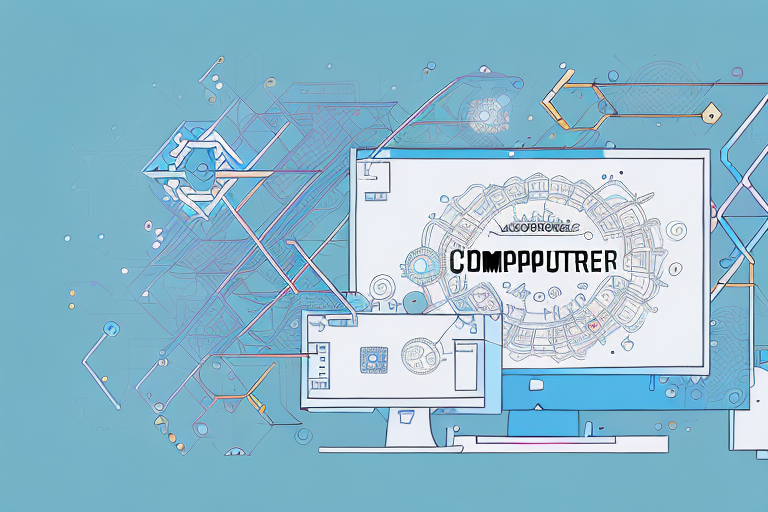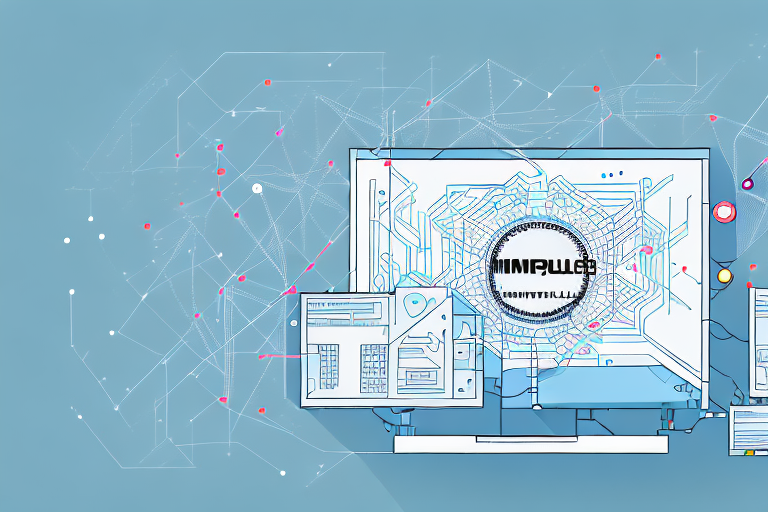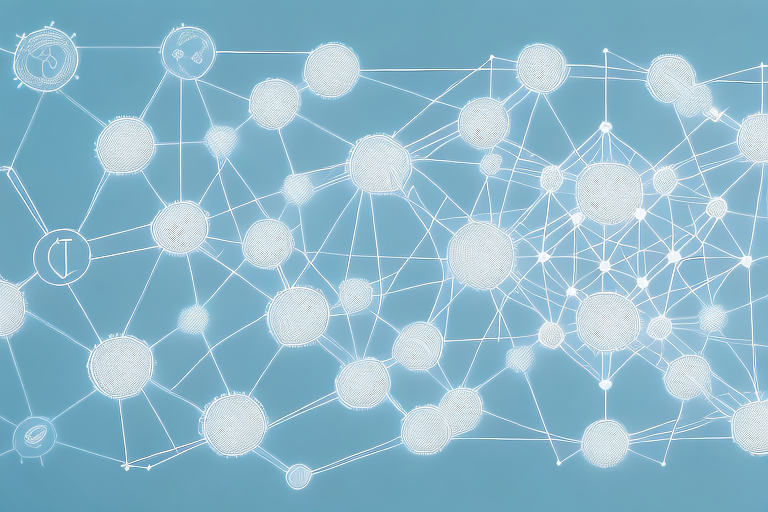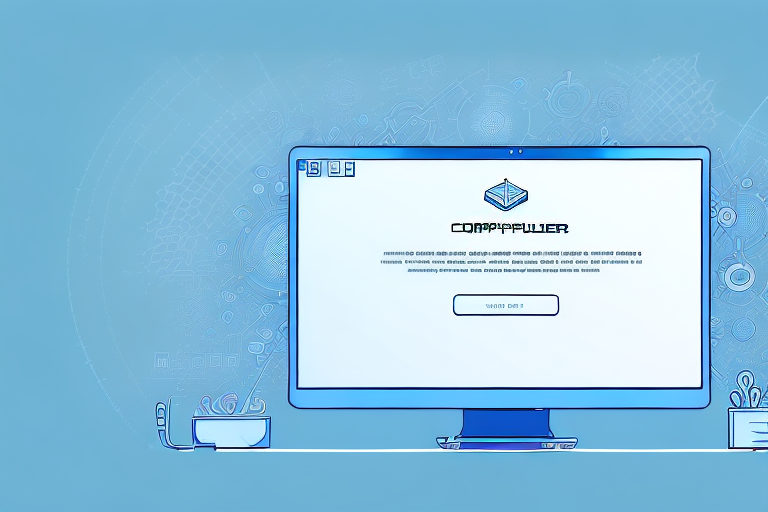Acing Your Microsoft System Design Interview

Acing Your Microsoft System Design Interview
In today's competitive job market, landing an interview at Microsoft is a significant achievement. However, the real challenge lies in acing the interview and securing the job offer. One aspect of the Microsoft interview process that candidates must prepare for is the System Design Interview. In this article, we will explore what a System Design Interview entails, why it is crucial in Microsoft's hiring process, and how you can best prepare for it.
Understanding the Microsoft System Design Interview
Before delving into the nitty-gritty details of the Microsoft System Design Interview, let's clarify what it actually is. A System Design Interview is a technical interview conducted by Microsoft to assess a candidate's ability to design scalable and efficient systems. It focuses on evaluating a candidate's architectural and problem-solving skills, as well as their understanding of various system design concepts.
When it comes to designing large-scale systems, there are numerous factors to consider. The ability to handle high traffic, ensure fault tolerance, and maintain data consistency are just a few of the challenges that system designers face. Microsoft recognizes the importance of these skills and incorporates them into their hiring process through the System Design Interview.
What is a System Design Interview?
A System Design Interview is a type of interview where candidates are asked to design a system that can handle a given set of requirements. It involves understanding the problem statement, identifying the key components of the system, and designing a solution that meets both functional and non-functional requirements.
During the interview, candidates are typically presented with a scenario that requires the design of a scalable and efficient system. They are expected to demonstrate their ability to break down complex problems into manageable components and propose a well-thought-out solution. This may involve discussing the choice of technologies, data storage mechanisms, communication protocols, and more.
System Design Interviews are not only about technical knowledge but also about the ability to think critically and make informed decisions. Candidates must consider trade-offs, such as the trade-off between consistency and availability, and justify their design choices based on these considerations.
Why is it Important in Microsoft's Hiring Process?
The System Design Interview holds immense importance in Microsoft's hiring process as it assesses a candidate's ability to design scalable systems, which is a critical skill required for many roles at the company. Microsoft places a strong emphasis on building robust and efficient software systems, and therefore, evaluating candidates' system design abilities is crucial in determining their suitability for various roles within the organization.
By evaluating a candidate's system design skills, Microsoft can identify individuals who have the potential to contribute to the development of cutting-edge technologies and solutions. The ability to design scalable systems is particularly important in the context of cloud computing, where applications need to handle a massive number of requests from users all over the world.
Moreover, the System Design Interview also allows Microsoft to assess a candidate's problem-solving abilities and their understanding of system design concepts. These skills are essential for engineers who will be working on complex projects that require designing and implementing efficient and reliable systems.
In conclusion, the Microsoft System Design Interview plays a crucial role in evaluating a candidate's ability to design scalable and efficient systems. It not only tests technical knowledge but also assesses problem-solving skills and the ability to make informed design decisions. By incorporating this interview into their hiring process, Microsoft ensures that they select candidates who have the potential to contribute to the development of innovative and robust software systems.
Preparing for the Microsoft System Design Interview
Now that we understand the significance of the Microsoft System Design Interview, let's explore how you can best prepare for it to increase your chances of success.
The Microsoft System Design Interview is a crucial step in the hiring process for technical roles at Microsoft. It assesses your ability to design scalable and efficient systems, which are fundamental for building large-scale software applications. To excel in this interview, it is important to have a strong foundation in system design concepts, familiarize yourself with Microsoft's technology stack, and practice with mock interviews.
Reviewing Essential System Design Concepts
Before diving into the technical aspects of the interview, it's essential to have a strong foundation in system design concepts. Familiarize yourself with important topics such as scalable architectures, distributed systems, caching mechanisms, database design, and load balancing algorithms. Having a solid understanding of these concepts will form the basis for your system design solutions during the interview.
Scalable architectures are crucial for handling increasing user load and ensuring that the system can handle high traffic without performance degradation. Distributed systems enable the efficient processing of data across multiple servers, allowing for fault tolerance and improved performance. Caching mechanisms help reduce the load on databases by storing frequently accessed data in memory. Database design involves designing efficient schemas and optimizing query performance. Load balancing algorithms distribute incoming network traffic across multiple servers to ensure optimal resource utilization.
Understanding Microsoft's Technology Stack
In addition to understanding general system design concepts, it's important to have knowledge of Microsoft's technology stack. Research and learn about the various tools, frameworks, and platforms commonly used at Microsoft. This will not only demonstrate your interest in the company but also help you align your system design solutions with the technologies Microsoft utilizes.
Microsoft's technology stack includes a wide range of products and services, such as Azure cloud platform, .NET framework, SQL Server, Azure DevOps, and many more. Familiarize yourself with these technologies and understand how they can be leveraged to build scalable and reliable systems. For example, Azure provides various services like Azure App Service, Azure Functions, and Azure Cosmos DB, which can be used to build highly available and scalable applications.
Practicing with Mock Interviews
Practice makes perfect, and the same applies to System Design Interviews. Seek out opportunities to practice mock interviews with experienced professionals or peers who are well-versed in system design. Mock interviews provide a safe space to test your skills, receive feedback, and refine your problem-solving approach. Additionally, solving real-world system design problems will help you gain confidence and improve your ability to articulate your solutions effectively.
During mock interviews, focus on understanding the problem requirements, identifying the key components of the system, and designing a scalable and efficient solution. Practice discussing trade-offs, justifying your design decisions, and considering edge cases. Mock interviews will help you identify areas for improvement and refine your system design skills.
Remember, the Microsoft System Design Interview is an opportunity to showcase your ability to design complex systems. By reviewing essential system design concepts, understanding Microsoft's technology stack, and practicing with mock interviews, you can increase your chances of success and impress the interviewers with your technical expertise.
During the Interview: Tips and Strategies
When the day of the System Design Interview arrives, it's essential to be well-prepared and adopt some key tips and strategies to maximize your performance.
Preparing for a System Design Interview involves more than just technical knowledge. It requires effective communication, problem-solving skills, and a deep understanding of the company you are interviewing with.
Communicating Effectively with Interviewers
During the interview, effective communication is crucial. Clearly articulate your thoughts and assumptions while designing the system. Break down complex problems into smaller, manageable components, and explain your design choices along the way.
Interviewers appreciate candidates who can communicate their ideas concisely and effectively. It is important to strike a balance between being thorough and being concise. Demonstrating good communication skills will not only help the interviewers understand your solution better but also showcase your ability to collaborate in a team-oriented environment.
Demonstrating Problem-Solving Skills
System Design Interviews are not solely about the final solution; they also aim to assess your problem-solving skills. Approach the problem systematically, analyze trade-offs, and propose optimized solutions.
When faced with a complex system design problem, it's important to consider scalability, performance, fault tolerance, and other key factors. Interviewers are interested not only in the end-result but also in understanding your thought process and decision-making abilities.
Remember, it's not just about finding a solution; it's about finding the best solution.
Showcasing Your Knowledge of Microsoft Systems
Given the importance of system design at Microsoft, it's advantageous to demonstrate your knowledge of Microsoft's existing systems and technologies. If relevant, refer to Microsoft products, services, or technologies that align with your solution.
Highlighting your understanding of Microsoft's systems and technologies will showcase your interest in the company and help you stand out as a potential candidate. It also demonstrates that you have taken the time to research and understand the company's ecosystem.
Furthermore, showcasing your knowledge of Microsoft systems can lead to a more meaningful discussion with the interviewers. It provides an opportunity for you to discuss how your solution aligns with the company's goals and values.
Overall, when preparing for a System Design Interview, it's important to focus not only on technical aspects but also on effective communication, problem-solving skills, and aligning your solution with the company's systems and technologies.
Common Microsoft System Design Interview Questions
Preparing for the Microsoft System Design Interview requires familiarity with the types of questions you may encounter. Here are some common areas you should focus on:
Questions on Scalability and Performance
Microsoft places a strong emphasis on building scalable and performant systems. Expect questions that assess your ability to design systems that can handle high volumes of traffic, minimize latency, and ensure fault tolerance. Be prepared to discuss caching mechanisms, load balancing strategies, and approaches to handle distributed systems efficiently.
Questions on Data Management and Security
Data management and security play critical roles within any system design. Anticipate questions related to database design, data partitioning, and replication strategies. Additionally, be ready to address security concerns, such as authentication, authorization, and encryption, and how you would design a system to ensure robust security measures.
Post-Interview: Next Steps
After completing the System Design Interview, it's essential to follow certain steps to maximize your chances of success.
Following Up After the Interview
Send a personalized thank-you note to each interviewer, expressing your gratitude for the opportunity to interview at Microsoft. Use this as a chance to reiterate your interest in the role and briefly highlight any additional points you feel may strengthen your candidacy.
Evaluating Your Performance
Reflect on your performance during the interview and identify areas where you excelled and areas that may require improvement. Take note of the questions that challenged you the most and seek opportunities to improve your understanding of those concepts. Continuous self-evaluation is vital for personal growth and development.
Preparing for Potential Next Rounds
Depending on the outcome of the System Design Interview, you may progress to additional rounds of interviews. Be prepared for technical interviews, behavioral interviews, or code review sessions. Review the job description and the desired skills for the role you are pursuing, and tailor your preparation accordingly.
Conclusion: Turning the Interview into a Job Offer
As you conclude your preparation for the Microsoft System Design Interview, remember that success is not solely determined by acing the interview but also by continuous learning and improvement for future endeavors.
Reflecting on Your Interview Experience
Regardless of the outcome, take time to reflect on your overall interview experience. Review your strengths and areas for improvement, and utilize this knowledge to refine your interview strategy moving forward.
Continual Learning and Improvement for Future Interviews
Acing the Microsoft System Design Interview is a journey that requires effort and dedication. Invest in continuous learning, stay updated with industry trends, and seek opportunities to further enhance your skills. Remember that each interview is a stepping stone towards your long-term professional goals.
By effectively understanding the Microsoft System Design Interview, diligently preparing for it, and reflecting on your performance, you can increase your chances of acing the interview and turning it into a job offer. With the right mindset and preparation, you'll be well-equipped to showcase your system design capabilities and impress the interviewers at Microsoft.





